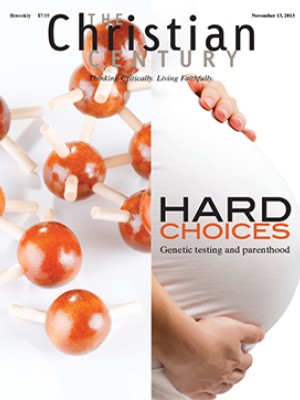Asian Americans upset by stereotypes used in church
Asian-American Christians are voicing concerns over how they’re depicted by white evangelicals, most recently at a conference hosted by Rick Warren’s Saddleback Church in California.
The conference was held by Exponential, a church-planting group, and a video shown on October 8 left some Asian Americans offended.
It’s the second dustup in as many months involving Asian Americans and Warren, who spoke at the Exponential conference.
He received backlash from Asian-American Christians in September after he posted a Facebook photo depicting the Red Guard during China’s Cultural Revolution. “The typical attitude of Saddleback staff as they start work each day,” the caption read on September 23. Warren later posted an apology.
In the video at Exponential, a pastor jokes about making his church-planting apprentice do menial activities, such as getting him coffee, giving him massages and holding his towel, according to Christine Lee, a Korean-American Episcopal priest who attended the conference.
Read our latest issue or browse back issues.
The apprentice reacts to the pastor in a parody of the Karate Kid, the 1984 martial arts film. The pastor begins speaking in a Chinese accent with “typical ‘Oriental’ music” playing in the background, Lee said. They go into a karate segment, and at one point they bow to each other.
“I know they are not trying to be offensive,” Lee said. “I was actually trying to talk myself out of [being offended], but I kept coming back to this question: Would they have done this with black people?”
Saddleback staff declined to comment on the skit since it came from Exponential. Exponential leaders could not be reached for comment.
A group of Asian-American Christians was drafting an open letter to address the larger issue of continued troubling stereotyping of Asian Americans and Asian culture.
“It’s disheartening to believe anyone is having to explain to fellow evangelicals that racist stereotypes are not OK, especially in the church and used in the name of mission,” said Kathy Khang, author and blogger who has been outspoken about race issues.
Several Asian-American Christians commented and blogged in September that the photo Warren posted on social media was distasteful.
“People often miss irony on the Internet. It’s a joke, people! If you take this seriously, you really shouldn’t be following me! Warren initially posted in a Facebook comment. “Did you know that, using Hebrew ironic humor, Jesus inserted several laugh lines—jokes—in the Sermon on the Mount? The self-righteous missed them all while the disciples were undoubtedly giggling!”
Warren took the photo down and apologized in the comments section on writer and speaker Sam Tsang’s blog. “Thanks so much for teaching us! It was removed instantly. May God bless you richly. Anytime you have guidance, you (or anyone else) can e-mail me directly,” Warren wrote in part.
Warren then posted photos announcing new Saddleback campuses, including one in Hong Kong, which upset Asian-American Christians who felt he needed to apologize more publicly.
Warren later posted an apology on Facebook, saying, “Staff handed me a hard copy of an e-mail from someone offended by a picture I posted. If you were hurt, upset, offended, or distressed by my insensitivity, I am truly sorry. May God richly bless you.”
It’s not the first time Asian Americans—about 13 percent of whom are evangelical, according to the Pew Research Center—have been upset by depictions from other Christians.
In 2009, the Christian publishing house Zondervan publicly apologized for publishing Deadly Viper: A Kung Fu Survival Guide for Life and Leadership, a book that uses illustrations depicting Chinese characters and images.
In 2004, LifeWay Christian Resources was criticized for its Asian-themed “Rickshaw Rally” Vacation Bible School curriculum, which some saw as racially insensitive. After the criticism, some changes were made in those materials, but the curriculum continued to be used.
“It is worth observing that it has almost been ten years since ‘Rickshaw Rally,’ and there are prominent American evangelical publishers, conferences, and pastors who still use Orientalizing imagery,” said Justin Tse, who is finishing a Ph.D. in geography at the University of British Columbia.
Author Helen Lee wonders whether the continued use of Asian imagery suggests that evangelicals are unable or unwilling to see their own cultural blind spots.
“How many times must we say the same thing before we are heard?” Lee said. “It is not acceptable to caricature Asian culture and to do so for quick laughs.” —RNS
This article was edited on October 28, 2013.





